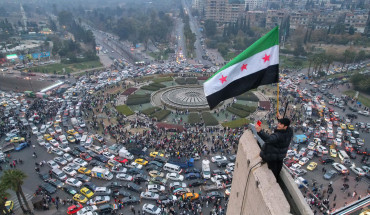MEI´s special edition of Viewpoints on "Architecture and Urbanism in the Middle East" is an opportunity to celebrate the beauty, diversity, and vitality of the built environment of the region. It is also an opportunity to consider the challenges facing architects, designers, and developers in their efforts not only to preserve the rich cultural heritage of Middle Eastern cities but to shape these urban spaces in ways that address the physical and socioeconomic pressures occurring within them.
Indeed, as the contributors to this volume demonstrate, the Middle East´s built environment is at an important juncture. There are major choices to be made if the region´s urban development is to meet the needs and expectations of its peoples. The 15 essays comprising this volume are snapshots of the built environment arcing from the Maghreb through the Levant to the Gulf.
Taken together, the essays suggest the need for a new paradigm of designing Middle Eastern urban spaces for sustainability - comprehensive in that it encompasses all physical components of human settlements such as buildings, streets, public spaces, and infrastructure; balanced in that it supports physical and economic growth while accommodating the traditional and cultural needs of the local community; responsive in that it protects and enhances the health, safety, and general wellbeing of inhabitants; and innovative in that it incorporates new technologies into designs so as to reduce the stress on the natural environment.
The Middle East Institute (MEI) is an independent, non-partisan, non-for-profit, educational organization. It does not engage in advocacy and its scholars’ opinions are their own. MEI welcomes financial donations, but retains sole editorial control over its work and its publications reflect only the authors’ views. For a listing of MEI donors, please click here.













